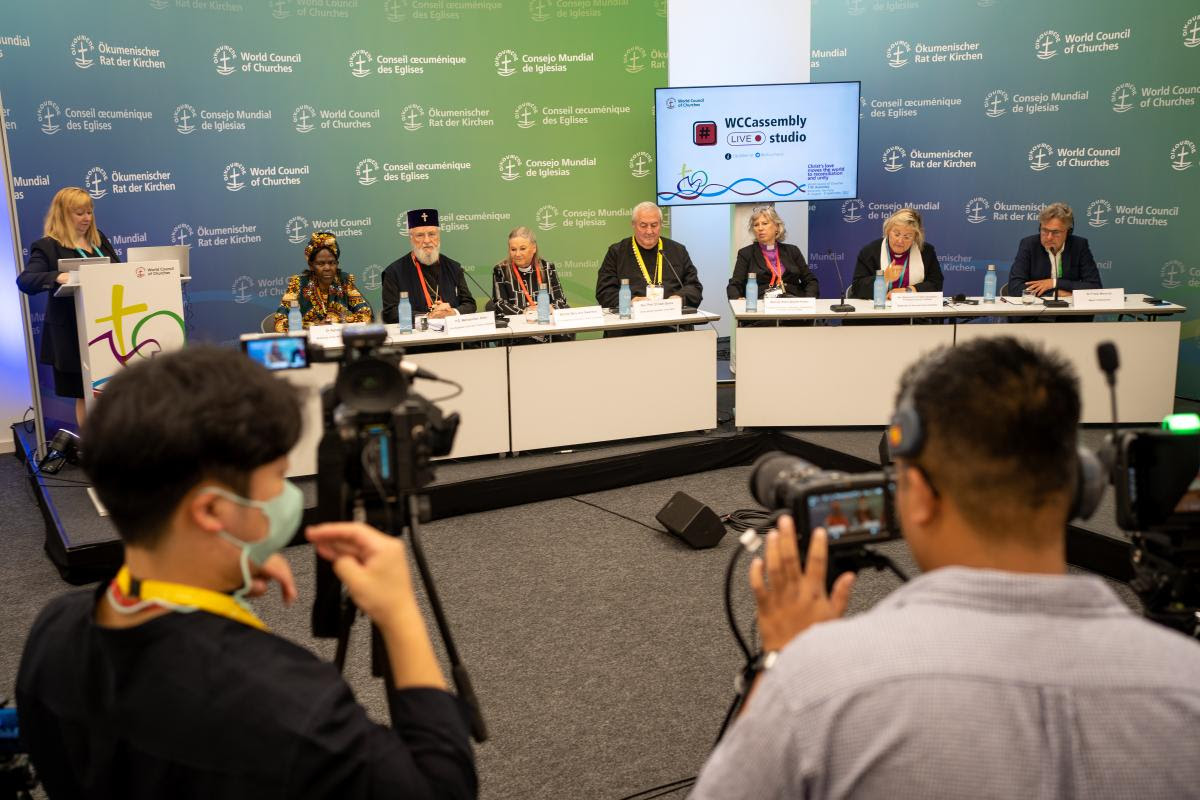Interest from the media surpassed expectations, particularly in Germany, according to a report released by WCC Communications. “Media coverage of the assembly turned out to be as extensive as expected, in spite of uncertainties, constraints, and delays caused by the pandemic,” said Claus Grue, a communications consultant and co-author of the report. “Providing comprehensive online media services, in addition to the onsite setup, was key in reaching global attention.” Through a media setup that combined an online and onsite press center open nearly around the clock, an assembly communications team helped more than 360 members of the media across the world tell the story of the assembly. Daily conferences and press briefings—18 in total—were interpreted in four languages. The communicators present on the team, both in-person in Karlsruhe and online across the world, helped raise awareness among media outlets and the public at large, added Grue. "The media attention around the event was an important opportunity for them to engage further in the ecumenical movement and learn more about the WCC, as well as the role of the media in getting messages out to a broader audience,” he said. The report found that, clearly, the WCC assembly was of significant interest to German media, particularly church media and editorial desks covering religion at major outlets “The speech of German president Frank-Walter Steinmeier, became headline news, particularly in Germany, but also elsewhere,” explains the report. The war in Ukraine and the presence at the assembly of delegations from both the Ukrainian and Russian Orthodox churches, was also of particular interest among journalists. Controversies around the Israel-Palestine conflict, allegations of antisemitism, and the WCC’s UN-aligned stance on the occupation also drew considerable media attention, as did climate change issues, the dangers of digitalization, and other issues dominating world affairs. The opening and closing sessions of the assembly were widely covered, with particular attention from the media to the reports from the moderator and the general secretary. The appointments of new officials to WCC governing bodies, as well as new WCC presidents, gained interest as well. A total of 68 local, regional, and national and church outlets in Germany alone—and more than 100 outlets across the globe—published or broadcasted news stories and features on several occasions throughout the assembly. Rev. Esther R. Suter, co-author of the report, served as a senior communicator on the team, and monitored daily media reports. “Daily media reports gathered by Meltwater Media Monitoring were around 50 to over 500 from all continents and an increasing number of countries – over 50 – involved,” said Suter. “Media coverage ranged from ‘left’ to ‘right,’ church-related to secular, daily or weekly newspapers and magazines, as well as radio and television.” Suter found that the coverage itself reflected interest in the speakers, elections, and program of the assembly, which was combined with locally offered parallel church and cultural programs for participation in various parts of Germany. World and regional historic conflicts were occasionally highlighted and deeply reflected. “The main subjects taken up by media I bundled into climate change and the right of Indigenous peoples, peace and reconciliation, women and ecumenism, Christian antisemitism, and Ukrainian Orthodox and Russian Orthodox churches,” explained Suter. “Of course there are more topics and of course not all texts and subjects, due to foreign languages like Chinese or Arabic, could be identified.” Overall, Suter said that monitoring media coverage gave her a perspective of an outside view into the assembly—the hopes, high expectations, and criticisms around the world. “This is a starting point for dialogue, interfaith understanding, and exchange,” she concluded. Order the media report from media@wcc-coe.org. 11th Assembly of the World Council of Churches Photos from the WCC 11th Assembly The face of the WCC: reaching more and more people across the world (WCC news release, 12 January 2023) | 
No comments:
Post a Comment